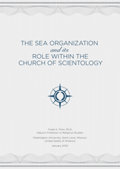I am presently employed as an Adjunct Professor in Religious Studies at Washington University, St. Louis, Missouri, where I teach courses on “Christianity in the Modern World,” “New Religious Movements in America,” “The North American Religious Experience,” and “Introduction to the World’s Religion.” In addition, I work independently as a writer, editor, lecturer, and consultant in the fields of theology and religion. I am a member in good standing of the American Academy of Religion. A copy of my curriculum vitae is attached hereto.
I received a B.A. in Philosophy in 1962 from Quincy University, Quincy, Illinois; a B. Div. magna cum laude in 1966 from the Harvard Divinity School, Cambridge, Massachusetts; and a Ph.D. in Special Religious Studies in 1981 from St. Michael’s College, Toronto School of Theology, Toronto, Ontario. My doctoral studies included an investigation of the rise of new religious movements in the United States and abroad after World War II, with reference to their belief systems, lifestyles, leadership, motivation and sincerity, material conditions of existence, and use of religious terminology. As part of my doctoral studies I also studied ancient sectarian movements, such as the Qumran community, Orphism, the mystery religions, and medieval religious orders and sectarian movements. I was a Fulbright Scholar in Philosophy and Ancient Near Eastern Religions at the University of Heidelberg during 1966–67 and a National Defense Foreign Language Fellow (Title VI) in Semitic Languages at the University of Pennsylvania during 1968–69.
In addition to my academic training in religious studies, I have had intensive personal involvement in the religious life as a friar in the Order of Friars Minor, popularly known as the Franciscans. I entered the Preparatory Seminary when I was 12½ years old. At the age of 18 I took the habit and entered the novitiate for a year of prayer, meditation and silence. At the age of 19 in 1958 I took my first, temporary vows of poverty, chastity and obedience. From 1958 to 1962 I studied philosophy and the liberal arts. In 1962 I took final, solemn vows of poverty, chastity and obedience, after which I began my formal study of theology, including the Christian scriptures, systematic theology, ethics, canon law, church history and archeology, etc. The vow of poverty meant that I owned absolutely nothing, not even the clothes on my back. I resided at three different monasteries in Illinois and Ohio and visited many others throughout the Midwest. In 1964 I decided to leave the monastery. I followed all the canonical procedures for a lawful departure and received a dispensation from my vows directly from Pope Paul VI in 1965. I remain a practicing Roman Catholic. As a friar, I experienced a type of religious life setting very similar to what members of the Sea Organization have in terms of study, discipline, and commitment.
Prior to my current position at Washington University, I taught at St. Louis University, St. Louis, Missouri, where I was Graduate Director of the Masters Program in Religion and Education and lectured on “The American Religious Experience” during 1977–79; the University of Toronto, Ontario, where I was Tutor in Comparative Religion during 1976–77; St. John’s College, Santa Fe, New Mexico, where I was Tutor in the Great Books Program from 1970 to 1975; LaSalle College, Philadelphia, Pennsylvania, where I was Lecturer in Biblical Studies and the Anthropology of Religion during 1969–73 (summer sessions); Boston College, Chestnut Hill, Massachusetts, where I was Lecturer in Biblical Studies during 1967–68; and Newton College of the Sacred Heart, Newton, Massachusetts, where I was Lecturer in Biblical Studies.
Since 1968, I have written as well as lectured about emerging religious movements in North America and elsewhere during the 19th and 20th centuries, including the Great Awakening, Shakerism, Mormonism, Seventh Day Adventism, the Jehovah’s Witnesses, New Harmony, the Oneida Community, Brook Farm, the Unification Church, the Hare Krishna movement, and the Church of Scientology. I have lectured frequently on the subject of new religions at colleges, universities, and professional conferences in the United States, Canada, Europe, Japan, and the Republic of China. I have also given testimony before the United States Congress, the New York Assembly, and the Ohio, Illinois, and Kansas Legislatures regarding various aspects of those traditional religions and present-day new religions of which I have long-term, firsthand knowledge. In various venues and court cases I have submitted opinions and testimony regarding the Holy Spirit Association for the Unification of Christianity (Unification Church), the Church of Scientology, the Hindu Vaisnavites (Hare Krishna), WICCA, the Bruderhof, the Christian Militia, the Anabaptist Amish, Christian Pre-millennialists, the Rastafarians, and others.
I have studied the Church of Scientology in depth since 1976, including its vast body of scriptures. Through visits to Scientology Churches and centers in Los Angeles; Gilman Hot Springs, California; Clearwater, Florida; St. Louis; Portland, Oregon; Toronto; and Paris, I have familiarized myself with the day-to-day workings of the religion. I have conducted numerous interviews with individual members of the Church of Scientology and have observed Scientologists engaging in the core religious practices of the denomination. I am also familiar with most of the extant literature on Scientology, ranging from works of objective scholarship to journalistic accounts to partisan commentary, both favorable and unfavorable. On the basis of this comprehensive study, and in the light of my academic background and my continuing professional experience, I have formed the opinions expressed below.





























